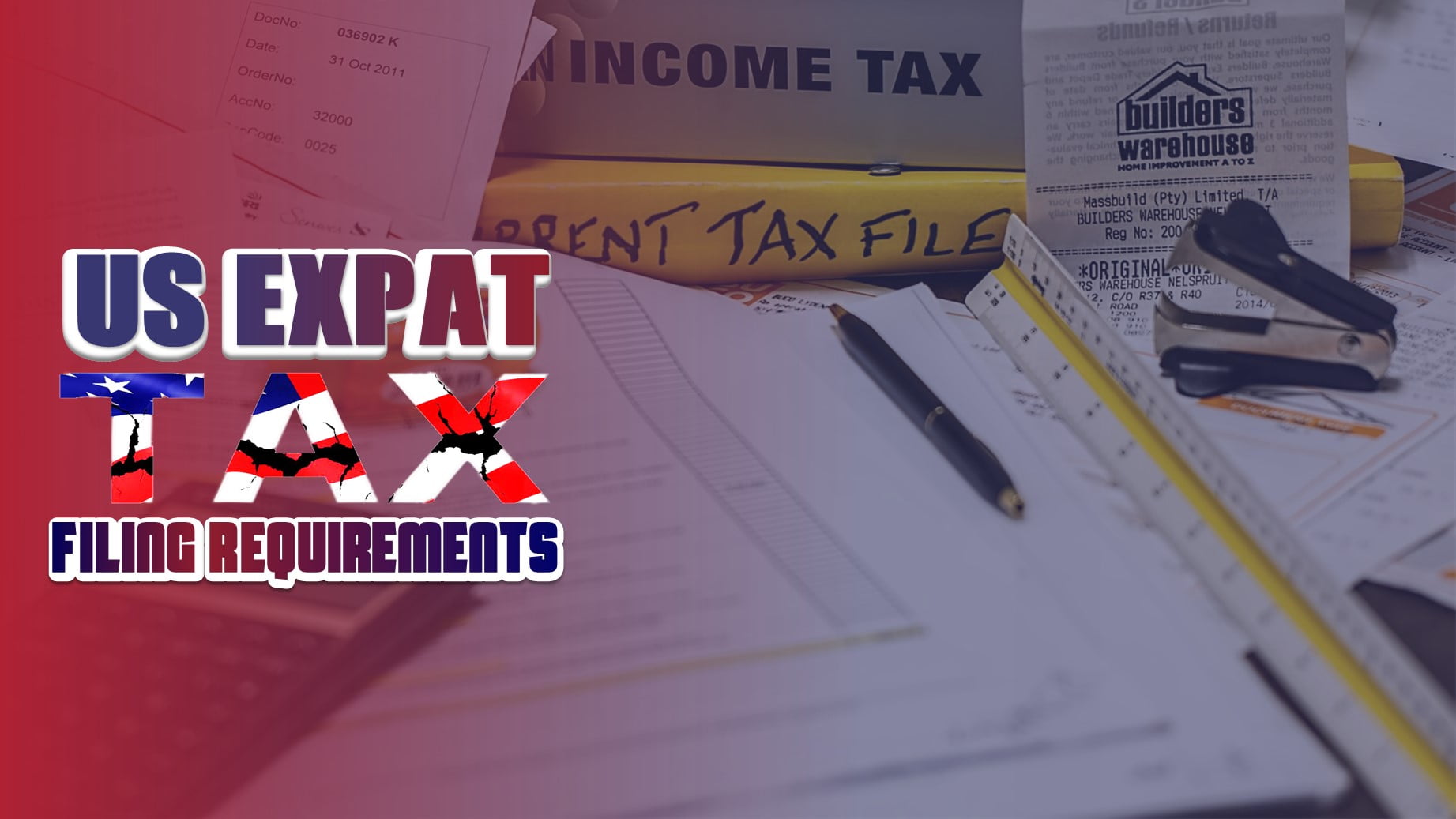
As of 2016, there were roughly nine million Americans living in foreign countries. These were individuals pursuing professional careers or personal objectives in areas far outside the nation’s borders. And while they were separated from many aspects of life in the U.S., they still remained attached through some unavoidable connections. One of those connections is the ever-lasting tax imposed by the government. A common term used to characterize folks who fall in this category is “expats.”
Who Are Expats?
Expats, which is a term derived from “expatriate,” are people whose legal status is that of U.S. citizens or permanent residents while their current location of living is outside of the country. So, even though you have full rights under U.S. laws, you are residing elsewhere for the vast majority of the year.
Double Taxation and Existing Strategies
Since expats spend most of their time in other countries, the original reason for special consideration regarding their taxes boils down to double-taxation. This has been a long-lasting issue that countless policymakers have battled against. In simple terms, double-taxation is a situation in which multiple levels of taxes are assessed on the same income. Corporations are a prime example of double-taxation as they have to pay entity taxes on earnings while the stockholders also have to pay personal taxes on dividends. Hence why most entrepreneurs are strongly against pursuing corporate-level ventures and stick with pass-through entities. Fortunately, courtesy of existing Internal Revenue Code, people can sidestep the US taxes for expats through things like the foreign earned income exception and foreign tax credit.
The Physical Presence Test
Before analyzing various methods that you can leverage against over-taxation, you have to ensure that you indeed are an expat. The reason why is that merely being a U.S. citizen or permanent resident and living somewhere else will not imply an automatic qualification. You also need to pass the physical presence test that assesses if 330 full days were spent outside of the United States in a 12-month period. Note that the 12-month period does not have to coincide with the calendar year. So, if you leave the United States in the middle of March of Year 1 and do not return from Country X until the middle of February of Year 2, you are still considered an expat for those 12 months. In case that the foreign country has given you their citizenship or legal residency, you will instantly qualify under the bona fide presence test and do not need to do the physical presence calculations. As far as the reason why the requirement is 330 days, the IRS sees the remaining 35-day window as a way for expats to still come home for vacations and emergencies.
Foreign Earned Income Exclusion
The most common way of avoiding taxes for expats is through the Foreign Earned Income Exclusion (FEIE). The form used here is Form 2555 and it allows expats to exclude up to $105,900 for 2018. That number may go up or down from year to year as it is calculated by multiplying the current inflation rates with the 2005 base exclusion of $80,000. In addition, not all types of income will be eligible for the exclusion. Some of the more common types of earnings that do not get the benefit are those originating from the U.S. Government, pensions, annuities, social security benefits, and meals furnished for the employer’s convenience. Most other types of income will be eligible. You could even utilize the exclusion on your self-employment earnings.
Choosing a Credit
Although FEIE and housing exclusions are usually enough to help expats reduce their U.S. tax liability to zero, the IRS also established a foreign tax credit. It is important to note, however, that you have to choose one. You cannot claim an FEIE and housing exclusion while still filing for the credit. Doing so would lead to an issue on the opposite side of the spectrum where you would be double-deducting the same income and understating your tax payable. Well, given how high the exclusions are, should anyone really bother with the credit?
The answer is yes. Tax credits have always been much more favorable than any exclusions or deductions. They let you receive a dollar-for-dollar reduction of the final tax liability. With exclusions and deductions, although there is a notable decrease in your taxable income, it is not a dollar-for-dollar reduction of the final tax due. Hence why credits tend to be preferred across all categories where they exist. As far as the foreign credit, it is a non-refundable one and the most it can do is reduce the final tax due down to zero. Unlike some educational credits, this one will not result in a refund when it drops your payment owed below zero.
The form that has to be filed for expat individuals claiming a foreign tax credit is Form 1116. Do not confuse this with the Form 1118 that is made for expat corporations. There is no clear-cut amount that can be taken off as everyone’s situation is different. To calculate the actual credit, you have to divide your foreign income by the sum of your foreign and U.S. income. That percentage will show the amount of final tax due that you do not have to pay since that portion of the tax is related to income made outside of the country.
Reporting Foreign Bank Accounts
Even though taxes for expats are one of the most complex questions surrounding their earnings, the IRS recognizes another area of concern. Namely, the government does not want to allow individuals to just stash as much money as they want in off-shore accounts. Doing so is indicative of money laundering and other types of illegal schemes that have to be penalized. This is where the Report of Foreign Bank and Financial Accounts (FBAR) comes in. FBAR filing is only applicable to expats who have more than $10,000 held across all of their foreign accounts. In addition, if you happen to be in a position of authority in some foreign bank, you will also need to file an FBAR. Luckily, the paperwork is pretty straight forward as it revolves around an e-filing system that will simplify your FBAR filing and improve accessibility. You can also delegate your authority for the FBAR to someone else by using Form FinCEN Report 114a that will legally share your power with the selected party. Most expats use this form to delegate their rights to their personal accountant who handles the entire process for them.
Misconceptions About 1040NR
One of the more common misconceptions surrounding the US taxes for expats ties to Form 1040NR. The base of the form is copied from the regular 1040 that U.S. citizens and permanent residents, read expats, have to file. The “NR” portion of it stands for “Non-Resident” aliens, however. Well, in order to be an expat, you have to be a citizen or a permanent resident with a valid green card. If you are a non-resident alien and need to file 1040NR, expat tax is not something that will apply to you anyway.
Filing Deadline and Extensions
The IRS normally requires everyone to submit their 1040s by April 15 of the subsequent year. In case of tax for expat individuals, however, the guidelines are a bit looser. For instance, nearly all expats will qualify for an automatic extension that pushes their due date to June 15. Note that FBARs do not fall in this category as they still need to be submitted online by April 15. Nonetheless, since FEIE and other exclusions can be quite difficult to complete, the IRS does not mind receiving them after April 15 and before June 15. One important rule that you should never forget is that tax payments that you owe to the government have nothing to do with any of the aforementioned filing extensions. So, while it is okay to submit your 1040 and accompanying forms or schedules by June 15, you need to pay your estimated tax before April 15. The IRS does not negotiate and has a zero-tolerance policy on the payment deadline.
Finally, always consider state-related expat tax for the state that you were a resident of prior to moving. Doing so is a necessary step when it comes to avoiding penalties imposed by states such as California, South Carolina, New Mexico, and Virginia. To obtain a more detailed list and any accompanying advice that will help sidestep potential tax liens, consider consulting a professional accounting service in Toronto.
The information is not intended to constitute professional advice and may not be appropriate for a specific individual or fact situation. It is written by the author solely in their personal capacity and cannot be attributed to the accounting firm with which they are affiliated. It is not intended to constitute professional advice, and neither the author nor the firm with which the author is associated shall accept any liability in respect of any reliance on the information contained herein. Readers should always consult with their professional advisors in respect of their particular situations.

